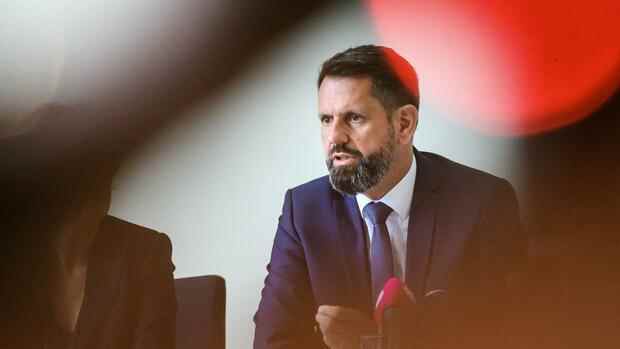Berlin In view of the drastically increased energy prices, Lower Saxony’s Energy Minister Olaf Lies (SPD) is calling for further relief for the citizens. All the measures currently being discussed to curb energy price increases, such as reducing the EEG surcharge to zero, diversifying procurement sources and expanding renewables, are not enough.
“We should think about an energy price protection shield for consumers and the economy in the short term,” Lies told the Handelsblatt.
Germany is even more dependent than other countries on energy imports from Russia: More than half of the gas and more than a third of the oil come from Russia.
The costs for electricity and gas customers in Germany had already risen before the war escalated. Lower Saxony’s energy minister, Lies, considers it important that the energy protection shield takes effect “in the short term”, because the Ukraine crisis is bringing a “completely new, negative dynamic”. On Monday evening, Chancellor Olaf Scholz (SPD) also spoke out in favor of examining further relief steps.
Two problems are currently coming together, explained Lies. In addition to the already sharply rising prices in recent months, there is now a possible supply problem.
That drives up the prices. However, the citizens and the economy “should not foot the bill for Vladimir Putin’s war of aggression,” warned Lies. “Our message is: We will not be blackmailed.”
Also help for the economy needed
According to Lies’ idea, the protective energy shield must ensure that the current price increases are at least dampened. “We have to develop a corresponding mechanism for this with a staggered equalization system,” said the SPD politician.
The protective shield should primarily help those who are suffering most from the current price spiral because they already have little income, said Lies. “And we have to protect our economy from being massively damaged by the war in Eastern Europe.”
Green environmental politician Stefan Wenzel spoke out against subsidies for companies. Instead, they should focus “massively on savings, efficiency, substitution and investments”. That is “economically consistent and also environmentally correct”.
The energy policy spokeswoman for the Greens parliamentary group, Ingrid Nestle, explicitly called for help for companies that were experiencing difficulties due to high gas prices. She also called for further relief for private households.
The Green politician said that the development could not be watched idly. The current relief package from the federal government is not sufficient.
At the same time, everything necessary must be done to reduce energy consumption on the one hand and to become more independent in terms of energy policy through the expansion of renewable energies on the other, said Nestle. “We cannot churn out huge sums of taxpayer money year after year to use exorbitantly large amounts of gas.”
The Federal Association of Consumer Organizations (VZBV) also sees a need for action. The heating cost subsidy decided by the federal government is “far too low,” said Thomas Engelke, team leader for energy and construction at VZBV, the Handelsblatt. “If natural gas prices continue to rise, which we assume, the heating subsidy must be well over 500 euros on average per low-income household.”
Consumers are threatened with high additional payments
The cabinet launched the grant for low-income households and many students and trainees in early February. The one-time financial injection is intended to cushion the increased prices for heating oil and gas somewhat – because many consumers are threatened with a hefty additional payment in the summer.
Recipients of housing benefit who live alone receive 135 euros, two-person households 175 euros. For each additional roommate, another 35 euros are provided. Students, trainees and other beneficiaries receive a flat rate of 115 euros.
The VZBV expert sees another lever for relief in the abolition of the EEG surcharge. “It is important that the money reaches private households in full,” said Engelke.
>> Read also: Gas price breaks all records – call for a price cap
The “climate money” announced in the coalition agreement between the traffic light parties must now come. “The aim is to reimburse private households with the income from CO2 pricing in full and in a socially balanced manner,” explained Engelke.
Because of the currently unpredictable situation on the energy markets, the VZBV also considers it “essential to temporarily suspend gas and electricity cuts so that those affected do not have to freeze in a cold apartment”.
However, the German Economic Institute (IW) sees only limited opportunities to shield private households from rising energy prices. “If the state takes over part of the increased costs, they will not be eliminated, but will be financed by the taxpayer,” said IW managing director Hubertus Bardt of the Handelsblatt.
The possibilities of shielding private households from rising costs are therefore limited, said Bardt. However, the flat-rate heating costs can be increased.
More: A turning point for Europe’s politics and economy: This is how Vladimir Putin’s war is reorganizing the world
